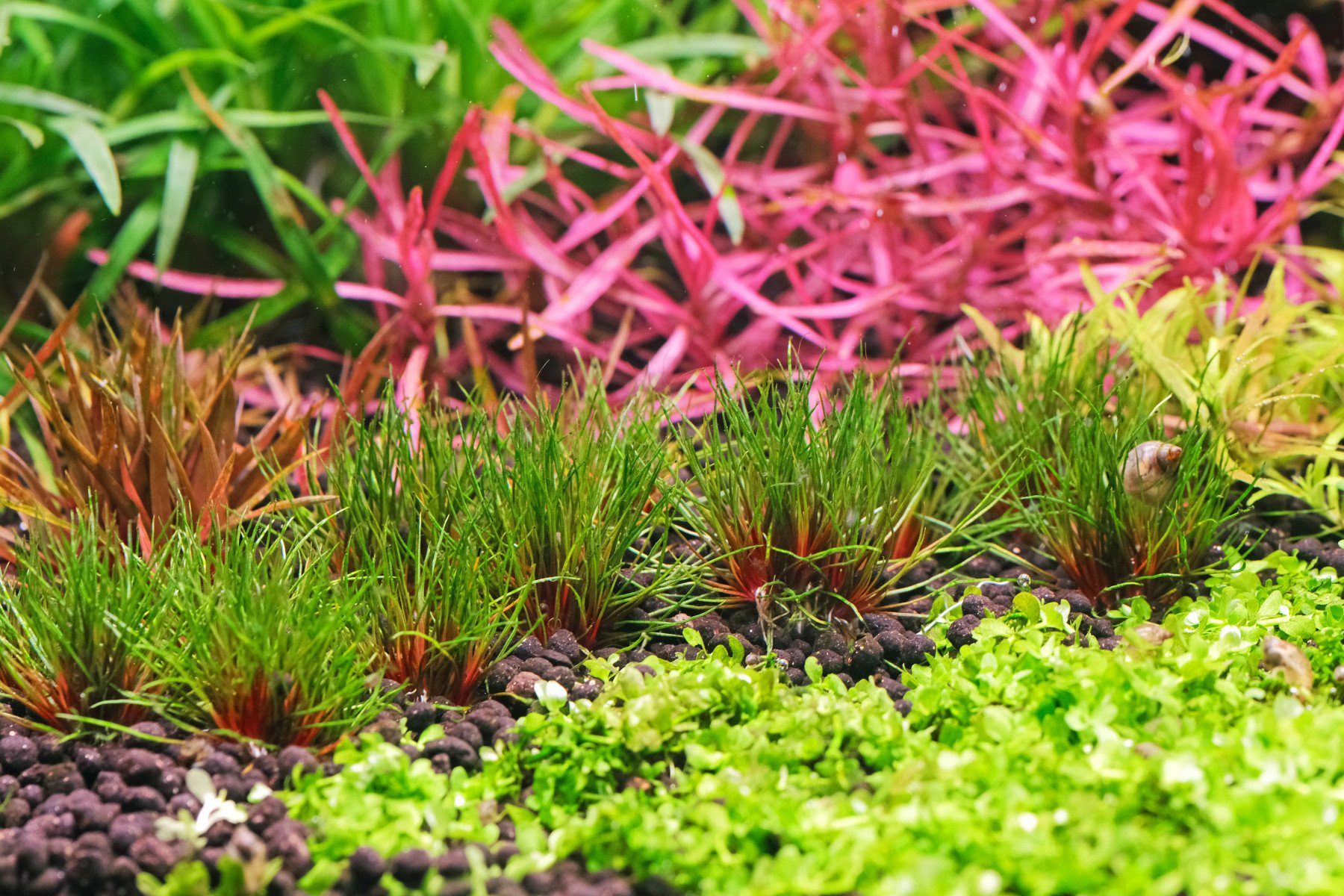Should I use APT Sky or APT Sky plus?Updated a year ago
| APT SKY | APT SKYPLUS | |
| Most Plants | ++ | ++ |
| Rare Softwater Plants | ++ | + |
| Hardwater Plants | + | ++ |
| Most snails | + | ++ |
| Caridina shrimps | ++ | + |
| Neocaridina shrimps | + | ++ |
| Guppies, Mollies | + | ++ |
| Most Tetras | ++ | + |
| KH | 0 dKH | ~2 d KH |
| pH | no change | 7.2~7.6 pH |
If you keep guppies, mollies, snails and have concerns about low pH, go for APT SKYPLUS.
APT SKY will raise your GH (general hardness) levels without changing your KH (carbonate hardness) levels. APT SKY PLUS will increase both your GH and KH levels. pH is directly correlated to KH, so APT SKY PLUS will slightly increase pH levels while APT SKY will have no effect on pH.
In general, APT SKY PLUS should be used when you want to raise both your GH and KH/pH levels and APT SKY should be used when you only want to raise your GH without affecting your KH/pH levels.
If you are concerned that aquasoils are lowering your pH too much, APT SKY PLUS will raise both KH and GH to provide some buffering capacity and raise the pH slightly. APT SKY PLUS raises KH slightly, but still within the tolerances of soft water loving plants. It raises KH just enough to act as a buffer against sharp drops in pH. If you are concerned about pH levels being too low, APT SKY PLUS is a good alternative to APT SKY.
Plants are generally flexible with GH levels, with quite a few species that do better with moderate/higher GH levels (5+ dGH) such as Rotala florida, Cryptocoryne flamingo & other cryptocoryne species.
Soft water plants such as Tonina and Syngonanthus species require low KH levels < 2dKH but are flexible to higher GH levels. Many soft water species can be grown in water with a high general hardness, such as 10dGH+, as long as the KH levels are kept low. To this end, the combination of slightly elevated GH levels (5 dGH) and low KH ranges (<2dKH) accommodates the widest range of aquatic plant species.
 Centrolepis drummondiana ("Blood vomit") grown in 5 dGH, 0.5 dKH water. This species does not tolerate higher KH values.
Centrolepis drummondiana ("Blood vomit") grown in 5 dGH, 0.5 dKH water. This species does not tolerate higher KH values.
A few aquatic plant species prefer more alkaline water (higher dKH levels) - this include Pogostemon helferi and Vallisneria species. Some aquatic organisms also prefer higher KH values such as some sub-species of Neocaridina shrimp and most aquatic snails.